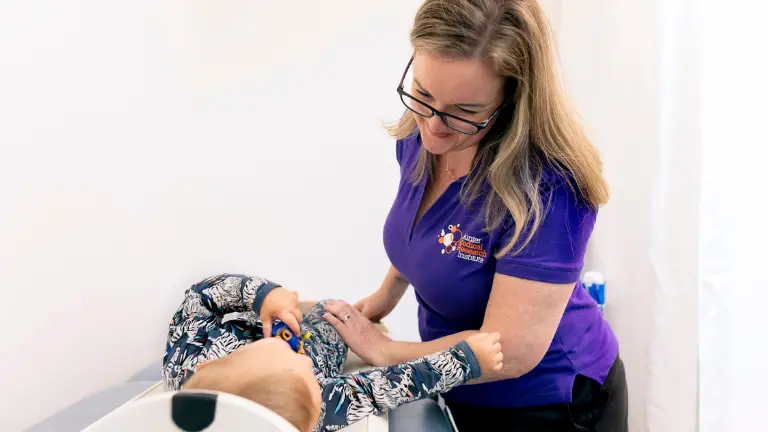
HMRI and University of Newcastle Mothers and Babies researchers have just completed a breastfeeding study to determine the impact of lactation support.
Lead researcher Dr Tegan Grace says, “The Equip study looked at a new model of breastfeeding care based on the Continuity of Care (CoC) model which is very successful in midwifery.
“Most women have fragmented care for breastfeeding which can result in confusion and conflicting advice. There’s a large gap between leaving the hospital and engaging with community child health care services and up to 20 per cent of mothers cease breastfeeding in the first month during this time.
“We trialled a CoC model of support where a lactation consultant met women in the last trimester, then in the postnatal ward, then at least weekly for the first month, then fortnightly, then monthly for up to 6-months postpartum,” says Dr Grace.
Stephanie Merritt participated in the Equip study and says, “It was a really helpful study to be involved in. After I had Isla, the lactation consultant would come and see me and then we set up a little mums’ group and had meet-ups where she would answer questions for us.”
First-time mum Stephanie says that her breastfeeding journey was harder than expected.
“It just wasn’t working for me. It helped so much to have someone come and watch what I was doing. I had a heavy letdown and my baby would get very uncomfortable. I tried different things to slow down the feeds because Isla kept getting colic. I tried nipple shields and also pumping so that my husband could help with the feeds,” says Stephanie.
“I changed my diet. I tried everything. I breastfed for four months and then I moved to breastfeeding and pumping. I switched to formula at six months because she was uncomfortable and I was uncomfortable,” says Stephanie.
Stephanie said that even though her breastfeeding experience was challenging, it was enormously helpful to have support.
“The lactation consultant would give me things to try, come over and watch me feed and give me pointers. The main thing was the clarification that I wasn’t doing anything wrong. It was really helpful,” says Stephanie.
While the data on the study is still being analysed, Stephanie’s experience highlights the importance of expert breastfeeding support.
HMRI would like to acknowledge the Traditional Custodians of the land on which we work and live, the Awabakal and Worimi peoples, and pay our respects to Elders past and present. We recognise and respect their cultural heritage and beliefs and their continued connection to their land.
Hunter Medical Research Institute
We’re taking healthy further.
Locked Bag 1000
New Lambton
NSW, Australia, 2305


This site is protected by reCAPTCHA and the Google Privacy Policy and Terms of Service apply.
Copyright © 2024 Hunter Medical Research Institute | ABN: 27 081 436 919
Site by Marlin Communications
